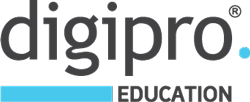Use Design Thinking for Developing Innovative Digital Curricula and Inspiring Learning Solutions

Instructor
-
 Chryso ChristodoulouCEO - Founder
Chryso ChristodoulouCEO - FounderMrs. Chryso Christodoulou is the founder of FUNecole® Research Institute and the co-founder of Digipro Education Limited. Her academic background is in Computer Science and Education. She is the designer and author of the FUNecole® for Cambridge ICT Starters Initial Steps endorsed by University of Cambridge International Examinations and recognized best practice educational approach by the European Commission. Mrs. Christodoulou is an external educational expert for the Institute of Prospective Technological Studies (IPTS) on various educational research projects. She is a program committee member for the Institute of Electrical and Electronics Engineers’ (IEEE) Computer society. Mrs. Christodoulou participates as keynote speaker and panelist at numerous conferences, seminars and workshops around the world. Mrs. Christodoulou´s work has been published in scholarly and policy publications, such as IEEE Xplore and the European Parliament Magazine. She is a recognized as an entrepreneurship expert by OECD and is one of 350 European Ambassadors of Entrepreneurship.

Recent Participants

Date
- Jun 15 - 19 2020
- Expired!
Cost
- Fully Subsidized
Location
We are today at the beginning of a Fourth Industrial Revolution. Developments in previously disjointed fields, such as artificial intelligence and machine learning, robotics, nanotechnology, 3D printing, and genetics and biotechnology are all building on and amplifying one another. Bio is the new digital “Nikolas Negroponte” MIT Media Labs. Smart systems-homes, factories, arms, grids, or entire cities- will help tackle problems ranging from supply-chain management o climate change.
With the world changing so quickly, how can we get to a place where schools are experimenting and able to adapt at the rate needed to keep up? We are in the middle of significant disruptions that are requiring new abilities and roles in our future workplaces. Innovation is pushing us to fine-tune our skills in data collection and interpretation and demanding that we master lifelong learning. With the rate of change increasing exponentially, leadership will also need to draw on new strategies and practices to work with and support new talent, the younger population of educators who are more adaptable and accustomed to a change-oriented environment. The skills to manage, shape, and lead the changes underway will be in short supply unless we take action today to develop them. The talent revolution needs to take place. Public policies and school curricula need to change profoundly. Education, skills need to connect with and support employment skills. (World Economic Forum 2016b, page 7)
The role of school leaders need a significant disruption, too. What if leaders were able to approach their work more like designers? Designers see the world differently and therefore bring a new perspective to their work. This new perspective is desperately needed in schools and does begin with the school leader and head educators. We call this new perspective design-inspired leadership and believe it is one of the most potent ways to spark positive change and address education challenges using the same design and innovation principles that have been so successful in private industry.
Therefore, we need this “Designed- Inspired Leadership” in all our classrooms, schools and societies! Some of the world’s leading brands, such as Apple, Google, Samsung, and General Electric, have rapidly adopted the design thinking approach, and design thinking is being taught at leading universities around the world, including Stanford, Harvard, and MIT. What is design thinking, and why is it so popular and effective? Design thinking enables big corporations to design better products, services, processes, strategies, spaces, architecture, and experiences. On the other hand, Design thinking helps schools develop practical and innovative learning plans that are human-focused, prototype-driven, innovative design process. Through this seminar, participants will develop a solid understanding of the fundamental phases and methods of design thinking, and you will learn how to implement your newfound knowledge in their work.
This dynamic seminar will put school leaders and head educators in the driver’s seat and enable them to make choices about both the pace of change and the distance you wish to travel.
Regardless of our background and experience, educators are all designers with the common goal of making education better. A design might happen unintentionally, but it happens. From the first planning next week’s staff meeting to the creation of school goals, implementation of new programs, and the meeting of new mandates, we are continually designing.
Conclusion
Learning has been disrupted by technology, which has altered how we learn. For the first time in history, people of all ages can learn anything they want at any time of day with little more than a device and an Internet connection. At the same time 3D printers, programming, wearable computing capture the imaginations of today’s students. New technologies that combine with hands-on traditions, the classroom becomes a maker space where learning soars. The time is now to place invention and creativity ahead of worksheets and testing. Schools in Cyprus need to join the learning revolution sweeping the globe!
This seminar will offer valuable insight to owners and Middle and High school principals/managers, educational curriculum consultants and master trainers of private middle and high schools and institutes approved by the Ministry of Education and Culture.
This expert educator professional development workshop aims to provide Middle and High school principals/managers, educational curriculum consultants with the latest state of the art tools, platforms and educational pedagogies that will fully support them to acquire the following types of knowledge, skills and attitude-related objectives:
Knowledge-related objectives
- Understand the need to join the learning revolution sweeping the globe, join the new maker movement and turn any classroom into a centre of innovation.
- Understand that learning occurs through student inclusion,
- interest, engagement, design and building.
- Realize that design thinking methods and strategies belong in every modern classroom: design thinking is not an exclusive property of designers—all great innovators in literature, art, music, science, engineering, and business have practiced it, and therefore, the earlier schools include them in the learning processes, the better is for the tomorrow’s leaders.
- Realize that the most powerful way to learn is to “Invent to Learn.”
Skills-related objectives (Be able to)
- Apply practical design thinking methods during problem-solving to generate innovative user-centric solutions.
- Initiate a new educational culture based on a user-centric approach, empathy, ideation, prototyping, and playful testing.
- Employ ethnographic and analysis methods, such as interviews, focus groups, and surveys during class interactions.
- Use 3D printers, programmable wearable computing prototypes early and fast, to capture today’s student’s imaginations.
- Use technology to make, repair, make and engineer transforming today’s classrooms as a place of testing, invention and creativity maker’s spaces where learning soars!
Attitude-related objectives
- Use design thinking to explore the changing educational landscape, reframe the role of the school leader for an accidental designer to “design-inspired leader” acting with a higher intention and achieving greater educational impact.
- Identify opportunities for positively impacting students as opportunity seekers, experience architects, rule breakers, producers and storytellers.
- Guide the schools to the forefront of new design education movement, one that will move traditional education into the modern world and drive the future of learning.
- Break free from the grip of today’s education directives that expect teachers to teach! A great teacher needs to help students imagine and invent by facilitating the learning process!
In-house seminar objectives:
Ideas, pedagogical methods, tools and recourses demonstrated during the two workshop days will be used to assist with the individual progress of participating schools and workshop participants. In-house training by both workshop Instructors will focus on discussing in more detail what the schools can do to transform learning processes and fulfill student needs. Workshop participants will be able to become:
Opportunity Seekers: Seek from problem solver to problem finder.
Experience Architects: Design and curate learning experience
Rule breaker: Challenge the ways things are “always” done
Producers: Get things done and create rapid learning cycles for teams
Storytellers: Captures the hearts of minds of students.
Day 1: 07:30 – 09:20
| Arrival & Registration Digital Cosmopolitanism in an Age of Connection!
Ways of Developing and Assessing the New Digital Society Skills:
|
09:20-09:30 | Coffee Break |
09:30- 11:00
| Challenging Young Learners: Energizing Lessons for Generation “Z”
|
11:00-11:10 | Lunch Break |
11:10 -12:30 | Design Thinking Principles
Design Thinking tools and resources |
Day 2 | Arrival Recapitulation of the first day The Design Thinking Toolkit:
Transforming students from Accidental Designers to Design-Inspired Leaders
Case Studies: Design Thinking at Apple Design is thinking in IBM, Design Thinking at Google. |
09:20-09:30 | Coffee Break |
| The Digital Revolutions:
Design Thinking and Making: The Art of Creation
Case study: Compute to Fabricate: the output of a program rearranges atoms and bits |
11:00-11:10 | Coffee Break |
11:10 – 12:30 | Design Thinking and Computer Science for all.
|
Day 3 07:30 – 09:20 | Arrival Recapitulation of the second day Use Design Thinking in Developing Programming Environments:
Synthetic Biology
|
09:20-09:30 | Coffee Break |
09:30 -11:00 | I Fabrication
Case studies: Machines learn how to learn: Deep learning Develop Group projects with Design Thinking, |
11:00-11:10 | Coffee Break |
11:10 – 12:30 | Technology and Engineering: The designer’s workbook:
Engage Others: Present robust solutions that improve the lives of others where technology provides the highest value! Present group projects that contain learning experiences beyond expectations driven by authentic passion and need Seminar Closure |
The event is finished.

SUBSIDY, ATTENDANCE, AND CANCELLATION POLICY
HRDA Subsidy and Seminar Attendance
- A company’s participant is eligible for a subsidy when their Social Insurance and Industrial Training contributions have been settled in full by the time of registration/seminar. In case of ineligibility/disqualification, the company will be invoiced the full amount per participant.
- A company’s participant is eligible for a subsidy if he/she completes an obligatory attendance of 75% or more (both during seminar and company visit). In case of failure to complete the attendance, the company will be invoiced the full amount, per participant.
Cancellation and Substitution Policy
- Cancellations can be accepted up to 5 working days prior to the seminar without penalties. For any cancellations received after the deadline (or no-shows), the company will be invoiced the full amount per participant.
- Substitutions can be accepted any time prior to the seminar without penalties.
- Τhroughout the seminar participants must have their camera and microphone open, for better communication and as defined by the specifications of HRDA otherwise participants will not be approved by HRDA.

